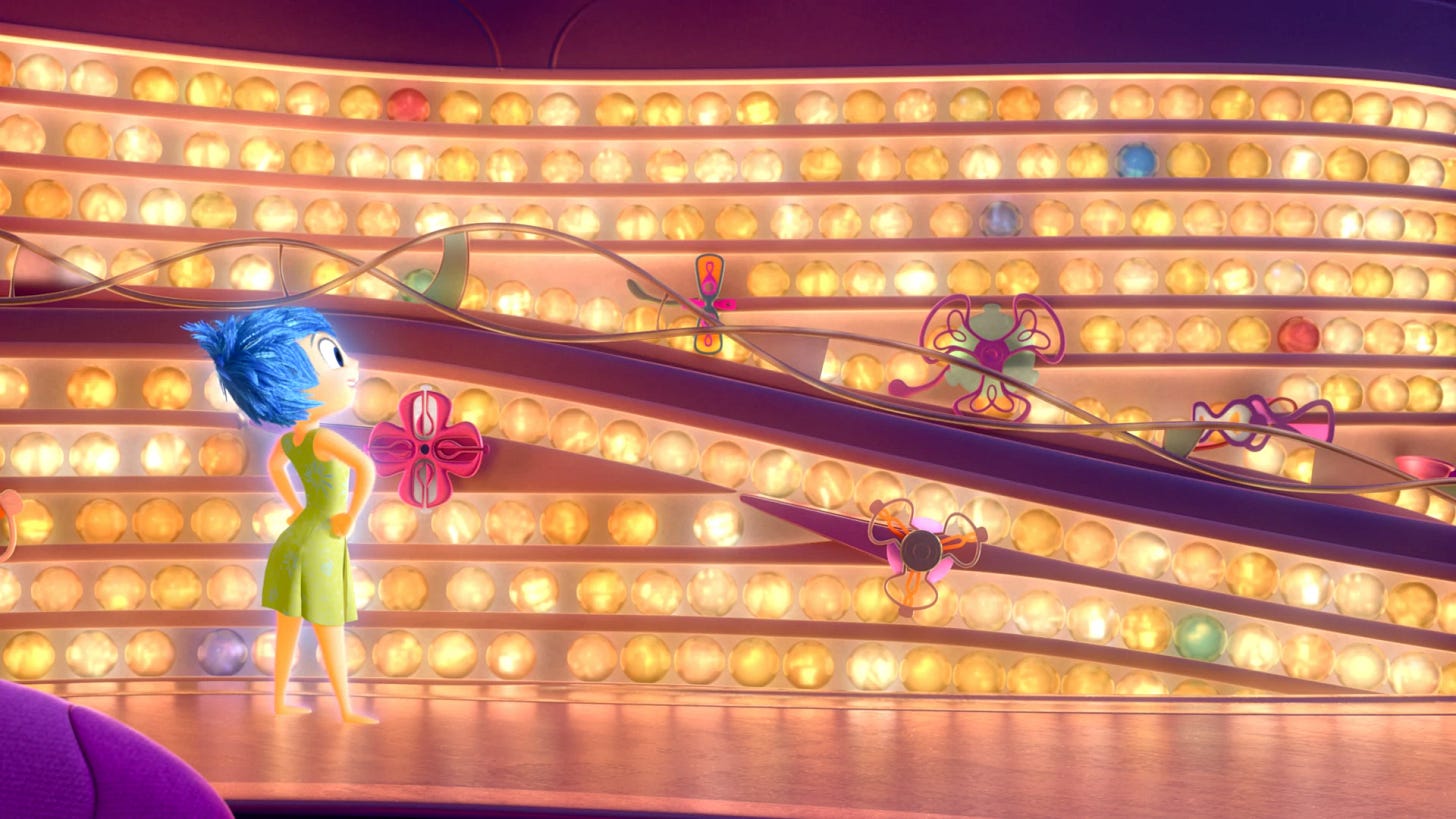Only the Present Exists From the Point of View of Knowledge
Epistemism and Views on Time
Creator: Pixar
Copyright: ©2015 Disney•Pixar. All Rights Reserved.
When it comes to how the philosophy of time in the context of Epistemism, the Buddhist aspects and its views on consciousness mean we land in a pure presentism. In this view only the present is real, not the past or the future.
There are events that have taken place earlier and there are events that will take place later, but they only exist to the extent that they are considered in the present, in consciousness. In the present moment, we can bring up the past, in the form of memories. And we can bring up the future, in the form of expectations or forecasts of what will happen. When brought to mind in the present, they exist, but when they are not considered by consciousness in the present moment, they cease to truly exist, since they are no longer fully known.
It’s only in the present that we can fully know things. We’re able to bring up pieces from the past or the future, but they can never be known fully, to 100%. One can see memories being brought up from the vault and put under the light of consciousness, much like they are represented in Pixar’s Inside Out, as colored balls. Expected and forecasted events in the future can similarly be represented by balls that are taken out of the urn. Neither the memories nor the forecasts are 100% certain and their epistemic status decays in both directions the further one gets from the present. The future ones cannot have full epistemic certainty by definition, and the past ones of course also degrade over time, and are probably not 100% even the first time they are brought to mind. One can try to remove the dust of the balls and shine them up, but they lose their shimmer over time, as they lose their epistemic status.
As much as the past and the future are experientially equivalent since they only truly take place as part of the present, the future, or really future presents, still have optionality, which the past does not. This makes those future present moments more valuable. This is in line with common intuitions, as for example see in the future bias, that Tarsney has investigated.
That the past and the future only exist when experienced as or in the present is also in line with why we want to maintain consciousness in the universe, which is one of the key tenets of Epistemism. We could otherwise be satisfied with there having been consciousness in the past, and therefore the mysteries of the universe had at one time been pondered, even if they were not pondered anymore, in the absence of any sentient beings. But that past ceases to exist from this perspective as soon as there is no present for anyone or anything to consider it in.
This is further also in line with all history being revisionist history. Since history, past events, can only be brought up and interpreted in the present, it is necessarily subjective. All history is narratives, that are inherently subject to their creators’ biases and views. A recent good example is the Dawn of Everything, which Karnofsky did a fun non-review of, where through just picking different examples (probably cherry-picking, but doesn’t change the point here), a very different history can be told.
True knowledge, the things of which we have greatest epistemic certainty, becomes essential precisely because of that uncertainty about what is real in the past and the future. That’s what makes it the bedrock of Epistemism.

